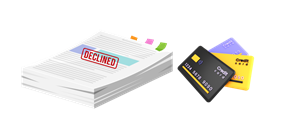06 JANUARY 2021
What is a Pawn Loan?
Pawn loans are a type of secured loan that allows you to borrow money by putting up personal assets as collateral. The value of your belongings determines the amount of cash you can borrow, making it a quick and efficient way to access funds when needed.
Pawn loans are ideal for people who require immediate financial assistance and cannot qualify for traditional loans due to bad credit or lack of collateral. Unlike traditional loans, pawn loans do not require extensive paperwork or credit checks, making them a convenient and hassle-free option for many.
What is a Pawnbroker?
A pawnbroker is a person or business that offers secured loans to people, with items of personal property used as collateral. The items pawned to the pawnbroker are known as pawns or pledges. If the loan is repaid in the agreed time frame, the pawned item will be returned to the borrower. If the loan is not repaid, the pawnbroker can sell the item to recover the loan amount.
Key Features of Pawn Loans
- Quick Cash: Loans are modest and ideal for short-term needs.
- Short Repayment Terms: Typically, loans last three months, with options to extend.
- No Credit Score Impact: Loans are secured against assets, not credit history.
Advantages of Pawnbroking
- Fast and Straightforward: Loans can be obtained in less than 30 minutes.
- No Credit Checks: Your credit history remains unaffected.
- Retain Ownership: You can reclaim pawned items early by repaying the loan and interest.
Disadvantages of Pawnbroking
- Higher Fees: Charges can be up to 35% of the loaned amount per month.
- Short-Term: Loans have a 3-month term, with potential for extensions.
- Risk of Loss: If you can't repay, you may lose your item permanently.
Alternatives to Pawnbroking

Turning to a pawnbroker loan may be tempting when you require quick cash. However, knowing that other options are available to you is important. One of the most common alternatives is a bank loan. Banks typically offer lower interest rates than pawnbrokers, but these loans may require good credit and a longer application process.
Another option is an overdraft on your checking account. This allows you to access extra funds when you don't have enough money in your account. However, overdrafts can come with high fees and interest rates, so read the terms carefully before agreeing.
Credit cards are another alternative to pawnbroker loans. If you have a credit card with a low-interest rate, you may be able to use it to cover your expenses. However, be aware that credit card debt can quickly add up if you don't pay off your balance on time.
You may want to consider selling items online through platforms like Trade Me. While this option may take longer to generate the cash you need, it can be a good way to get rid of items you no longer need and earn extra money without incurring any debt or interest charges.
Frequently Asked Questions (FAQs)
- Early Repayment: You can repay a pawnbroker loan early, saving additional interest charges.
- Multiple Collaterals: Pawning multiple items for a specific loan amount is common.
- Credit Checks: Pawnbrokers typically do not perform credit checks.
- Poor Credit Loans: You can get a pawn loan with a poor credit rating based solely on collateral value.
- Impact on Credit Rating: Not repaying a pawnbroker loan usually doesn't affect your credit rating.
Pawning vs. Selling Your Assets
While pawning and selling can provide you with a quick infusion of cash, it's essential to consider the long-term implications of each option before making a decision. Pawning may be ideal if you need money urgently but want to keep your item in the long run. On the other hand, selling may be a better option if you are willing to part ways with the item permanently and want to receive a lump sum of money upfront.
Considerations Before Pawning
When considering the option of pawning, it is important to carefully evaluate whether it is the right choice for your individual circumstances. This involves considering many factors, such as the fees associated with the pawn shop you are considering, the sentimental value of the item you are considering pawning, and the level of financial necessity you are facing.
Fees can vary significantly between different pawn shops, so you need to assess whether pawning is a necessary step to meet your financial needs or whether there may be alternative solutions that are more appropriate for your situation.
What Do Pawn Shops Loan Against?

Pawn shops are known for offering loans to customers needing quick cash. They accept a variety of valuable items as collateral for these loans. Some commonly accepted items include jewellery, gold, electronics, cars, and other high-value assets.
If You Cannot Repay Your Loan
When you take out a pawn loan from a pawnbroker, it's important to understand the terms and conditions of the loan. If you cannot repay the loan by the due date, you may be able to opt for a renewal option, or the pawnbroker may sell your asset to recover the funds.
At Superloans, we understand that unexpected things can happen, so we offer a pawn loan renewal option to help you manage your finances better. You can do so easily through our online payment platform, My Superloans.
Understanding Pawn Shop Fees
Pawn shops charge a monthly interest rate on loans, generally 10% to 35%, depending on the loan's size and the pawnbroker's policy. At Superloans, our maximum charge is limited to 30%. Moreover, retrieving your items is not just about getting your valuables back; it also increases your Superscore. As your SuperScore climbs, you'll benefit from lower fees on subsequent loans, enhancing the affordability of your borrowing experience with us over time.
What Loan Amount Can You Expect from a Pawnbroker?
The loan amount a pawnbroker offers is based on your item's estimated resale value. Typically, you could receive a loan between 30% and 60% of the item's market value, known as the loan-to-value (LTV) ratio. This ratio can vary based on the item's type, condition, and market demand. At Superloans, your LTV ratio improves as your Superscore increases with each item you successfully redeem, leading to better loan offers in the future.
What is LTV?
Loan-to-value (LTV) is a financial term that describes the ratio between the amount of money you want to borrow and the total value of the item you are willing to use as collateral. The LTV percentage is calculated by dividing the loan amount by the value of the collateral, and it helps the pawnbroker determine the maximum amount they are willing to lend you.
Ready to Unlock Quick Cash Without the Hassle?
Superloans is here to help with our first-time Free Loan offer! Our friendly team is ready to assist whether you're in Hastings, Napier, Lower Hutt, Porirua, or Wellington City.
Experience the benefits of pawn loans without the burden of fees and boost your Superscore with every item you redeem. This means lower fees on future loans and a smoother financial journey ahead.
Don't let financial stress weigh you down. Visit us at one of our five convenient locations or click Free Loan to learn more about the benefits and improve your financial health today. Your solution to immediate cash needs is just a step away with Superloans!


